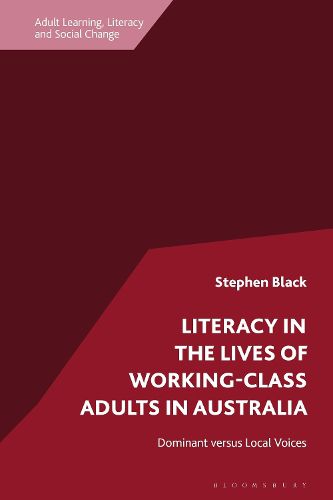Readings Newsletter
Become a Readings Member to make your shopping experience even easier.
Sign in or sign up for free!
You’re not far away from qualifying for FREE standard shipping within Australia
You’ve qualified for FREE standard shipping within Australia
The cart is loading…






Adopting a 'social practice' approach to literacy research based on ethnographic methods, this book provides a strong critique of dominant understandings of the role of literacy in the lives of adults in Australia. It explores how groups of working-class adults can manage the literacy practices of their everyday lives by drawing on social networks of support. It is based on research conducted by the author over a forty-year career in adult literacy education, featuring the voices of varied adult groups, including: prisoners, the long-term unemployed, local council workers, manufacturing workers, adult literacy students, marginalised young people, vocational students, and patients living with a chronic illness (type 2 diabetes).
Each chapter explains how dominant society views these adult groups in relation to literacy, and provides a qualitative examination at the local level of how members of these groups manage the literacy practices of their everyday lives.
$9.00 standard shipping within Australia
FREE standard shipping within Australia for orders over $100.00
Express & International shipping calculated at checkout
Adopting a 'social practice' approach to literacy research based on ethnographic methods, this book provides a strong critique of dominant understandings of the role of literacy in the lives of adults in Australia. It explores how groups of working-class adults can manage the literacy practices of their everyday lives by drawing on social networks of support. It is based on research conducted by the author over a forty-year career in adult literacy education, featuring the voices of varied adult groups, including: prisoners, the long-term unemployed, local council workers, manufacturing workers, adult literacy students, marginalised young people, vocational students, and patients living with a chronic illness (type 2 diabetes).
Each chapter explains how dominant society views these adult groups in relation to literacy, and provides a qualitative examination at the local level of how members of these groups manage the literacy practices of their everyday lives.